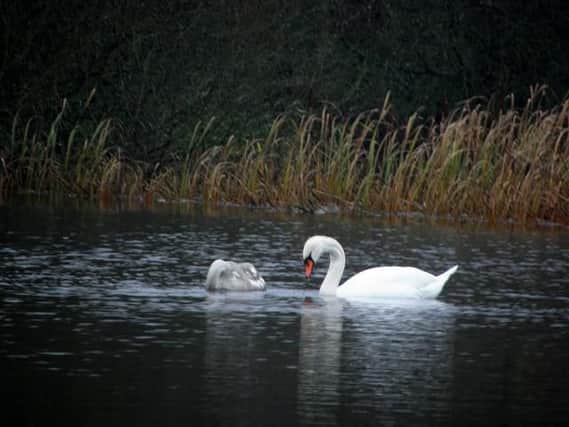'Bird flu' prevention measures extended after third Mid Ulster death


Chief Veterinary Officer, Robert Huey confirmed that the initial AIPZ, which means birds are to be kept indoors, remains in place until March 16.
From then until the end of April, birds can be allowed outside provided keepers put in place additional biosecurity measures to minimise the risk of infection from wild birds.
Advertisement
Hide AdAdvertisement
Hide AdThese new measures will apply across all of Northern Ireland.
Three wild birds are now confirmed to have contracted bird flu after being found dead in Mid Ulster - a Chinese Goose has been added the the two Whooper Swans found dead near Lough Beg.
A ban on gatherings of some species of birds at livestock fairs, auctions, shows or other events continues. This applies to species which are considered at higher risk of spreading avian influenza, including all poultry and game bird species, ducks, geese and swans.
But gatherings of pigeons, aviary birds and birds of prey can continue to take place.
Advertisement
Hide AdAdvertisement
Hide AdChief Veterinary Officer, Robert Huey said: "The decision to put in place a new Avian Influenza Protection Zone from 17 March is based on sound expert and industry advice.
"The risk of infection from wild birds is unlikely to decrease in Northern Ireland in the coming weeks, particularly as H5N8 has been confirmed in wild birds here. The current housing requirement, which is due to end on 16 March, has allowed keepers time to introduce stricter biosecurity measures.
"Therefore, it is our intention to lift the mandatory requirement to house after this date, subject to keepers maintaining the highest possible levels of biosecurity."
Mr Huey stressed that removing the requirement to house birds did not mean poultry keepers should stop being vigilant.
Advertisement
Hide AdAdvertisement
Hide AdHe said: "The proposal to allow birds outside does not mean a return to business as usual. It will be necessary for all keepers to continue to ensure that their birds are protected from infection.
"Key to this will be practicing additional biosecurity measures, coupled with ensuring that their birds are separated from wild birds when outside. Keepers should of course continue to house their birds if that is the best way to protect them from disease."
While further guidance will be issued closer to the time, the additional biosecurity requirements will involve a range of measures including:
- Ensuring that bird’s feed and water cannot be accessed by wild birds;
Advertisement
Hide AdAdvertisement
Hide Ad- Avoiding transfer of contamination between premises by cleansing and disinfecting equipment, vehicles and footwear;
- Separating domestic waterfowl (ducks and geese) from other domestic species, and
- Reducing the movement of people, vehicles or equipment to and from areas where poultry or captive birds are kept.
Mr Huey continued: "While the aim is to allow keepers to let their birds out, subject to their own assessment of the risks of doing so, this will depend on any change to the current disease situation.
Advertisement
Hide AdAdvertisement
Hide Ad"The Department will continue to provide updates over the next few weeks but in the meantime, anyone planning to let their birds outdoors from 17 March must consider what actions they need to take to reduce the risk of infection from birds being let outside.
"This could include keeping your range clear of wild birds, and where possible decontaminating the range. You may also consider discussing your arrangements with your private vet, who will be best placed to provide specific practical advice on reducing the risk of infection."
He added: "Expert advice remains that consumers should not be concerned about eating eggs or poultry and the threat to public health from the virus is very low."
Anyone who has any poultry or any other captive birds must be registered with the department.
Advertisement
Hide AdAdvertisement
Hide AdIf you are concerned about the health of your birds you should seek advice from your veterinary surgeon and if you suspect your birds are showing signs of the disease you should immediately report it to your nearest Department Veterinary Office.
Flock keepers are asked to keep up to date on the situation via the DAERA website at www.daera-ni.gov.uk/articles/avian-influenza-ai